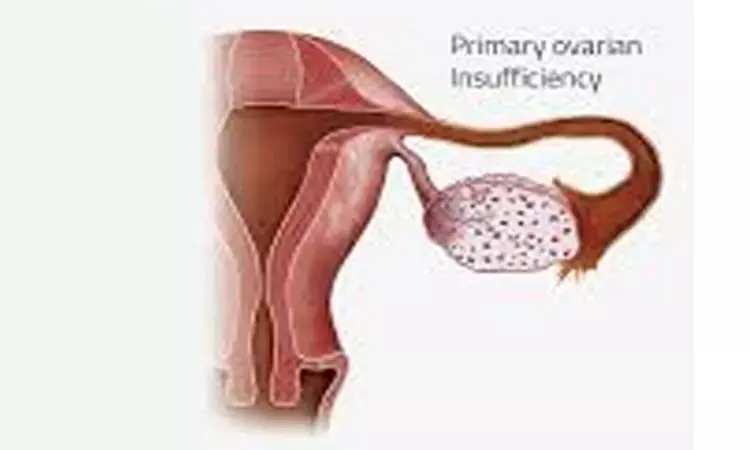- Home
- Medical news & Guidelines
- Anesthesiology
- Cardiology and CTVS
- Critical Care
- Dentistry
- Dermatology
- Diabetes and Endocrinology
- ENT
- Gastroenterology
- Medicine
- Nephrology
- Neurology
- Obstretics-Gynaecology
- Oncology
- Ophthalmology
- Orthopaedics
- Pediatrics-Neonatology
- Psychiatry
- Pulmonology
- Radiology
- Surgery
- Urology
- Laboratory Medicine
- Diet
- Nursing
- Paramedical
- Physiotherapy
- Health news
- Fact Check
- Bone Health Fact Check
- Brain Health Fact Check
- Cancer Related Fact Check
- Child Care Fact Check
- Dental and oral health fact check
- Diabetes and metabolic health fact check
- Diet and Nutrition Fact Check
- Eye and ENT Care Fact Check
- Fitness fact check
- Gut health fact check
- Heart health fact check
- Kidney health fact check
- Medical education fact check
- Men's health fact check
- Respiratory fact check
- Skin and hair care fact check
- Vaccine and Immunization fact check
- Women's health fact check
- AYUSH
- State News
- Andaman and Nicobar Islands
- Andhra Pradesh
- Arunachal Pradesh
- Assam
- Bihar
- Chandigarh
- Chattisgarh
- Dadra and Nagar Haveli
- Daman and Diu
- Delhi
- Goa
- Gujarat
- Haryana
- Himachal Pradesh
- Jammu & Kashmir
- Jharkhand
- Karnataka
- Kerala
- Ladakh
- Lakshadweep
- Madhya Pradesh
- Maharashtra
- Manipur
- Meghalaya
- Mizoram
- Nagaland
- Odisha
- Puducherry
- Punjab
- Rajasthan
- Sikkim
- Tamil Nadu
- Telangana
- Tripura
- Uttar Pradesh
- Uttrakhand
- West Bengal
- Medical Education
- Industry
Primary ovarian insufficiency not linked to obesity and diabetes: Study

Since long time the controversy regarding the connection between reproductive health and body mass index has continued unabated. Obesity and diabetes has been usually linked to primary ovarian insufficiency.
A new study refutes previous assumptions and demonstrates that primary ovarian insufficiency is not linked to body's tendency to store fat or process insulin.
Researchers in a new study assessed the effect of ovarian reserve on obesity and glucose metabolism and found that there was no correlation between the two. The study has been published online today in the journal Menopause.
Ovarian reserve has been defined as the number and quality of a woman's eggs. A low ovarian reserve means that the number and/or quality of eggs a woman has is low for her age, making it more difficult for her to become pregnant. But low ovarian reserve can have other health ramifications beyond fertility. A number of previous studies have suggested that a lower reserve is linked to an increase in the storage of fat and impaired ability to process insulin, putting a woman at greater risk for diabetes.
However, in this latest study involving more than 1,000 participants and follow-up of 16 years, researchers concluded that a woman's level of ovarian reserve was not associated with her risk of becoming obese or diabetic. The study specifically evaluated changes in a woman's level of antimüllerian hormone (AMH), which is found in the blood and helps to estimate the duration of a woman's reproductive lifespan, ultimately determining that this biomarker does not predict cardiometabolic risk.
Study results appear in the article, "Do trends of adiposity and metabolic parameters vary in women with different ovarian reserve status? A population-based cohort study."
"Although previous research has clearly established a link between early menopause and cardiovascular disease risk, the present study showed that lower ovarian reserve, as measured by a single AMH level, was not associated with greater over time trends in adiposity and markers of glucose metabolism. Additional study is needed to determine how best to predict cardiometabolic risk in women with and without primary ovarian insufficiency in order to initiate appropriate risk reduction strategies," says Dr. Stephanie Faubion, NAMS medical director.
For further reference log on to:
Dr Kamal Kant Kohli-MBBS, DTCD- a chest specialist with more than 30 years of practice and a flair for writing clinical articles, Dr Kamal Kant Kohli joined Medical Dialogues as a Chief Editor of Medical News. Besides writing articles, as an editor, he proofreads and verifies all the medical content published on Medical Dialogues including those coming from journals, studies,medical conferences,guidelines etc. Email: drkohli@medicaldialogues.in. Contact no. 011-43720751


